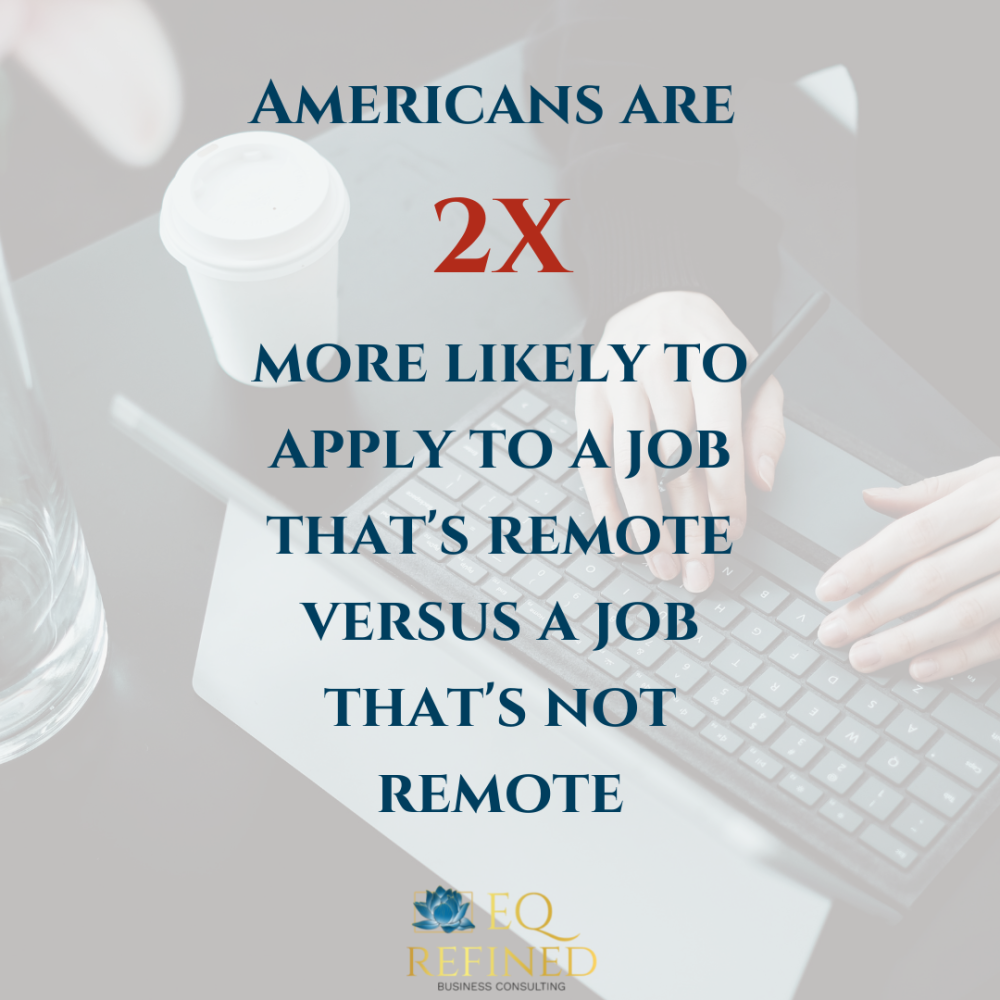What the Great Resignation is saying on behalf of Corporate America
Rebecca, a mother of two children under the age of five, was in charge of running a virtual meeting and presenting the performance review of their latest project to staff. As her five-year-old and three-year-old are vying for her attention, she kept them at arm's length while keeping her eyes on camera and remaining "professional." She has noticed that throughout the pandemic, senior leaders have asked her multiple times, "who's taking care of your children?" but has noticed that they have not asked her male colleagues that same question. After the meeting finished, she realized her children were very quiet. She found them in the upstairs bathroom with the tub overflowing with water while they pretended it was a pool. Her mind went whirling on the potential danger of what was in front of her and the possible scenarios her two children could have faced because she was in a business meeting where she needed to present.
Are senior leaders noticing that young parents are one of the hardest affected physically and emotionally during the pandemic? Over half of mothers with school-age children said that the stress and worry of the pandemic have affected their mental health, with one in five characterizing the impact as "major."
What is the real reason organizations are having difficulty retaining their employees? Is this a great story of resilience or resistance? Given that the mental health effects are likely to persist for a long time, access to mental health care will be an essential issue to watch, according to KFF Women's Health Survey 2020.
If your organization is not doing emotional intelligence training and mental wellness checks, then your team could be experiencing burnout with a workforce that will leave instead of learning tools and steps that build resilience.
Working mothers were the hardest hit during the pandemic because of a lack of childcare options. For the most part, with daycare and schools closing, it left them to carry a heavy burden of caring for their children's education. Each child in their unique age group has an individual learning requirement while also fulfilling their job's full-time requirements.
91% of working Americans from a recent survey said mothers bring unique and diverse skills like communication, multitasking, and remaining calm under fire to leadership that others don't. That's why it is time for employers to understand and empathize with how to best support them under these conditions.
Working mothers have been balancing motherhood, career progression, professional and personal development for years and the pandemic put a heavier burden on their ability to continue in the same rhythm. Strategies
Is there a trend in who is leaving the organization?
Hold authentic conversations regarding the trends that are being seen. Have an environment for open dialogue. Agreeing to hand in a project after 5 PM is not the best your organization can do to support working parents. Assumptions, unconscious bias, and expectations create a gap from correctly predicting and analyzing the data that tells a story about your department for the organization. Maribeth Bearfield, Bright Horizons CHRO shared in a recent SHRM article, "Let's not be the deciders of the person's career," Bearfield said. "Instead, talk to that employee, talk to that woman and ask, 'What do you want to be involved in? How do we help you advance your career and integrate family and work?' If you feel uncomfortable speaking openly, EQ Refined offers executive coaching on communicating with your staff transparently and authentically. Managers must learn to engage their people by creating new opportunities to connect and share feedback on progress.
Is your company open to telecommuting past the pandemic?
According to a new survey, nearly half of workers in the U.S. say they would take up to a 5% pay cut to continue to work at least part-time post-pandemic remotely. A quarter surveyed says they would quit their jobs if they couldn't work remotely! Research shows that before the pandemic, one in sixty-seven jobs were remote. Post pandemic, that number has increased to one in every seven jobs are remote. Employees want flexibility and are willing to resign if they are not heard to find employment that grants them the ability to live and work where they feel more comfortable and feel they have a sense of autonomy over their work.
It is significantly more critical than ever to learn to listen to your employee's needs and communicate effectively with them. Americans are two times more likely to apply to remote jobs than a job that is not remote and they are looking for a way to align individual purpose with their daily work. Companies realize if they want to attract diverse candidates, they have to meet them where they are now and working mothers have been balancing motherhood, career progression, professional and personal development for years, and the pandemic put a heavier burden on their ability to continue in the same rhythm.
As published by Inc., organizations must invest in helping their managers relearn skills that will enable them to address their teams' new, unique needs. Jessi Crast, a researcher at Limeade defines a caring culture as "providing organizational support for employee's social, physical, occupational, and emotional well-being." One way to achieve a caring culture is equipping managers with the right skills, like the ability to empathize with direct reports. Making employee mental health a top priority is the differentiating factor you want your organization to adopt.
The pandemic's ripples have reached a point where the mental health of your employees needs to be fully championed. Contact me at EQ Refined to begin to discuss how you can support your employees in developing the skills needed to build resilience.



